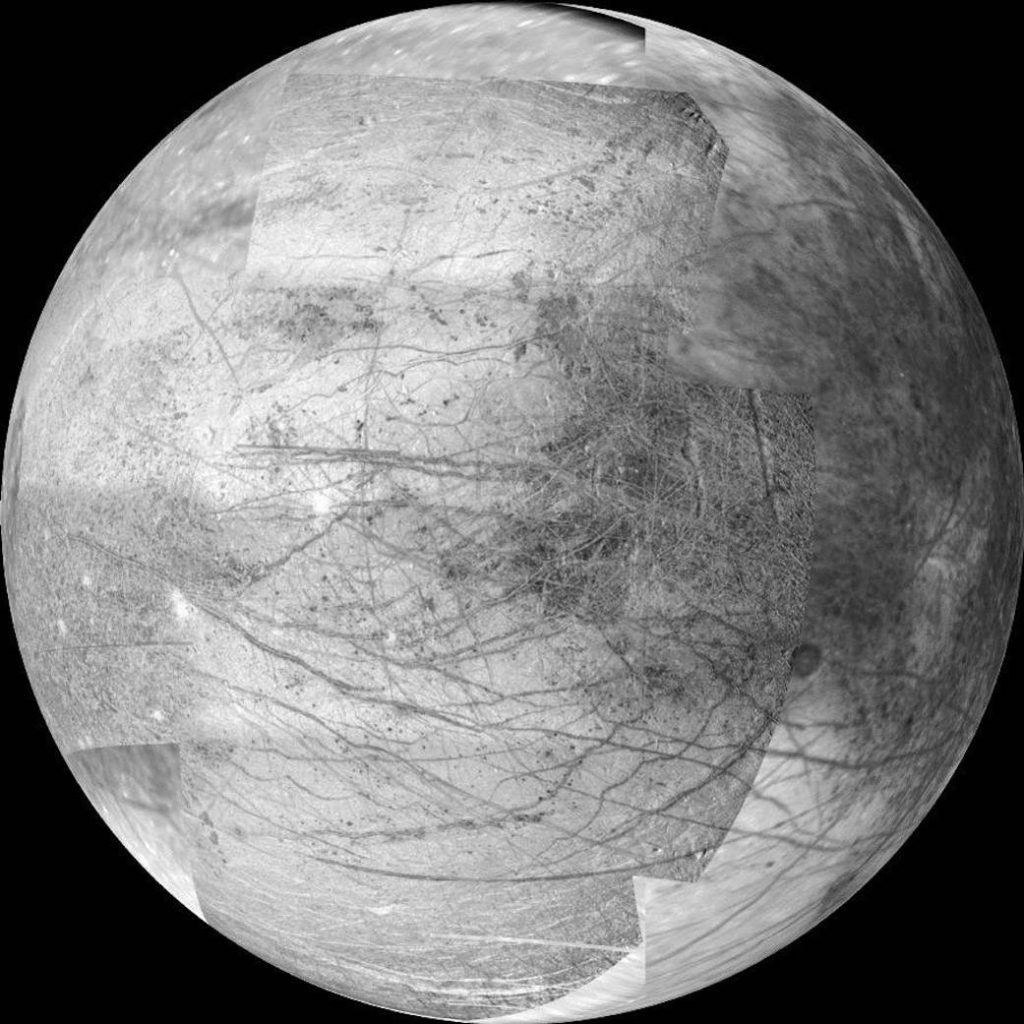A recent study suggests that the icy shell encasing Jupiter’s moon Europa may be rotating, potentially affecting the ocean underneath it.
Europa has long been considered an interesting candidate for the possibility of extraterrestrial life due to the presence of a subsurface ocean, which is believed to contain more than twice the amount of water found on Earth. The study, which utilized data from NASA’s Galileo spacecraft, focused on analyzing images of the moon’s surface to look for signs of rotational motion.
The researchers found that there were noticeable changes in the surface features between different images taken at different times, indicating that the shell covering the ocean may be rotating. If true, this would have important implications for the ocean’s circulation and the potential for life to exist in it.
The study’s lead author, Paul Schenk, explained that “if the ice shell is rotating, then any features that are moving with respect to the interior could lead to cracks and places where the ocean underneath is exposed to the surface.” This could potentially create areas where nutrients and other resources from the ocean could reach the surface, making them available for life forms on the moon’s surface.
Further research is needed to confirm whether Europa’s ocean shell is indeed rotating and, if so, how it is affecting the moon’s environment and potential for life. Nevertheless, this study provides valuable insights into one of the most intriguing bodies in our solar system and the possibilities it holds.





